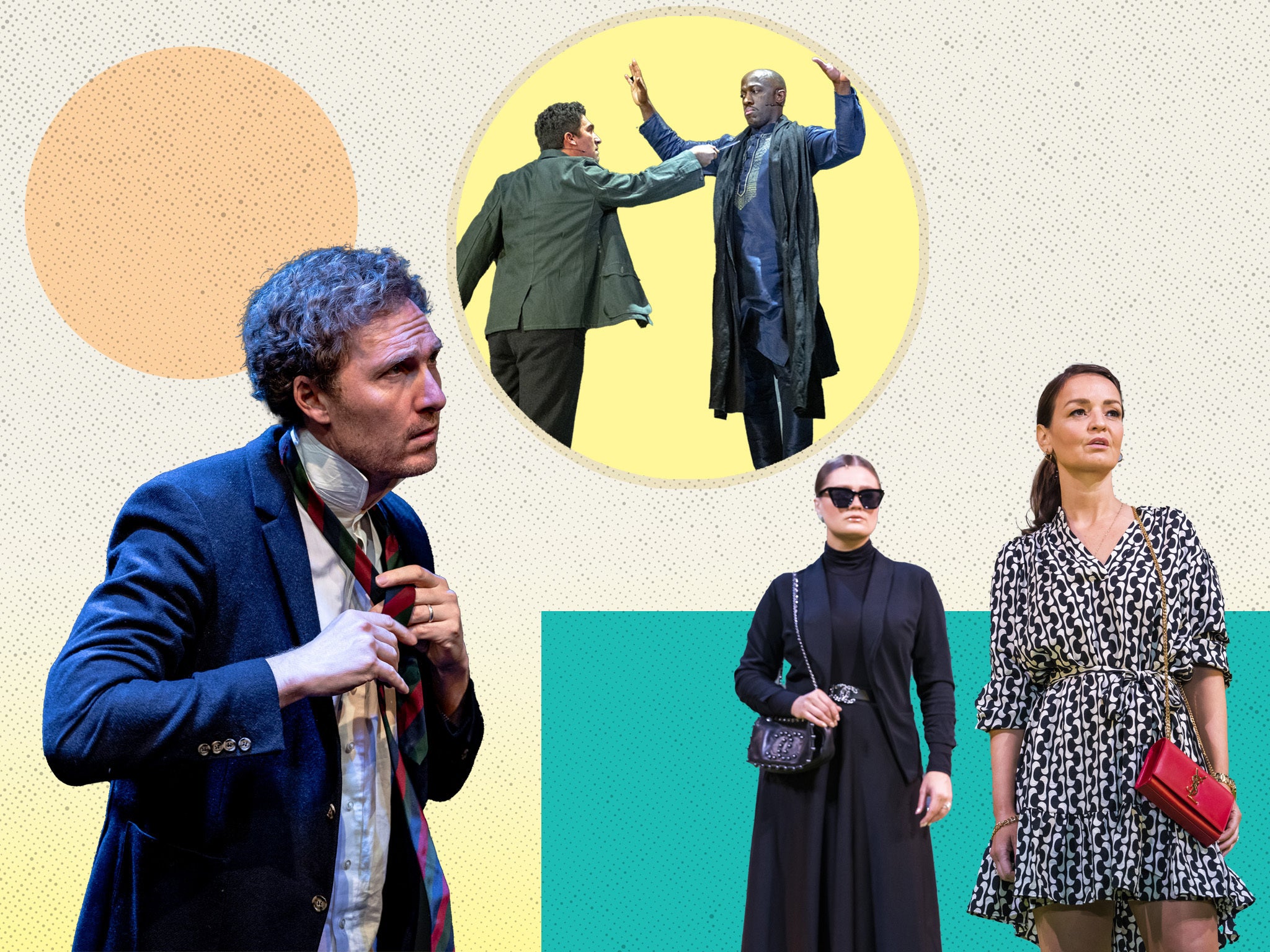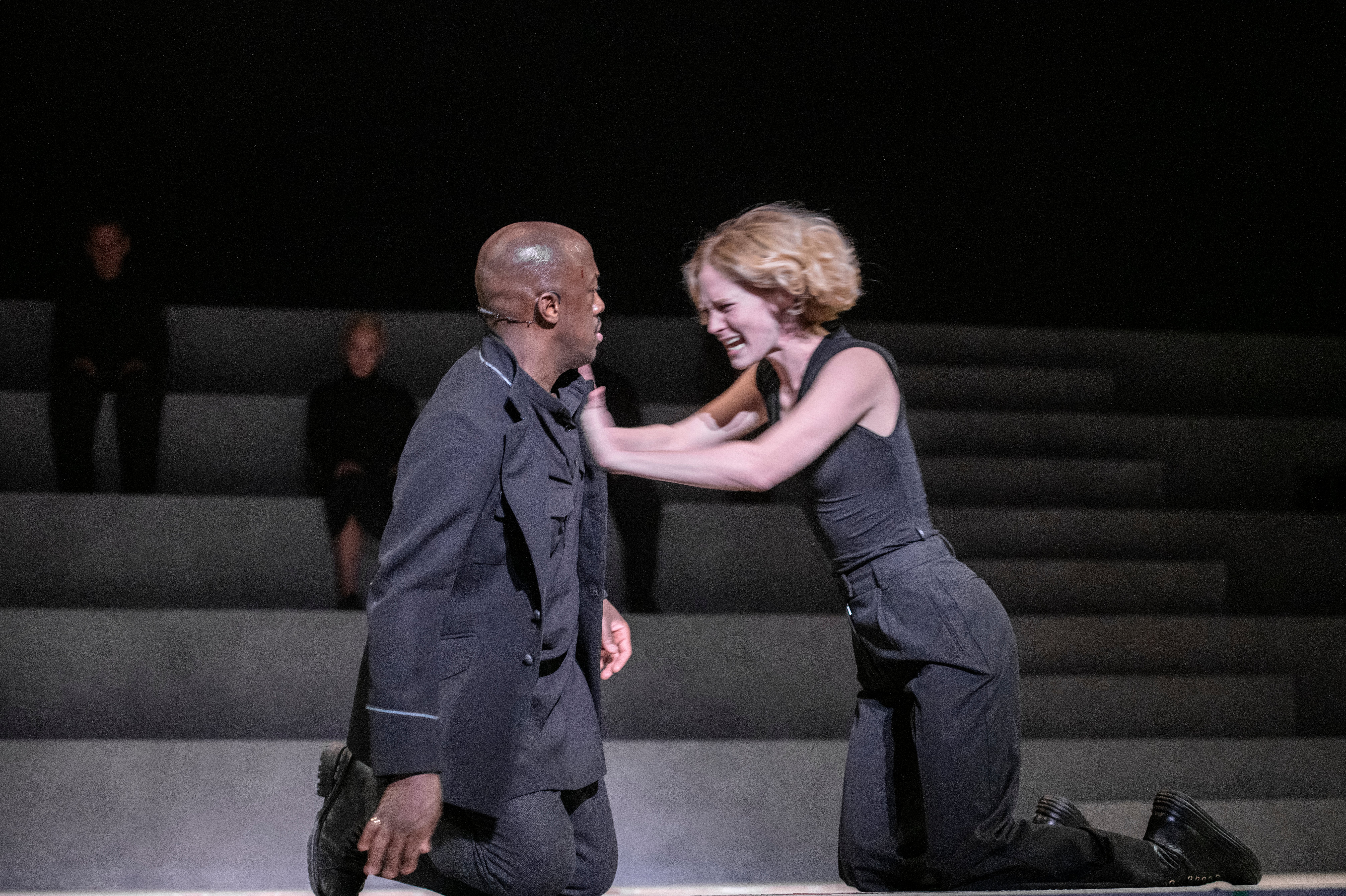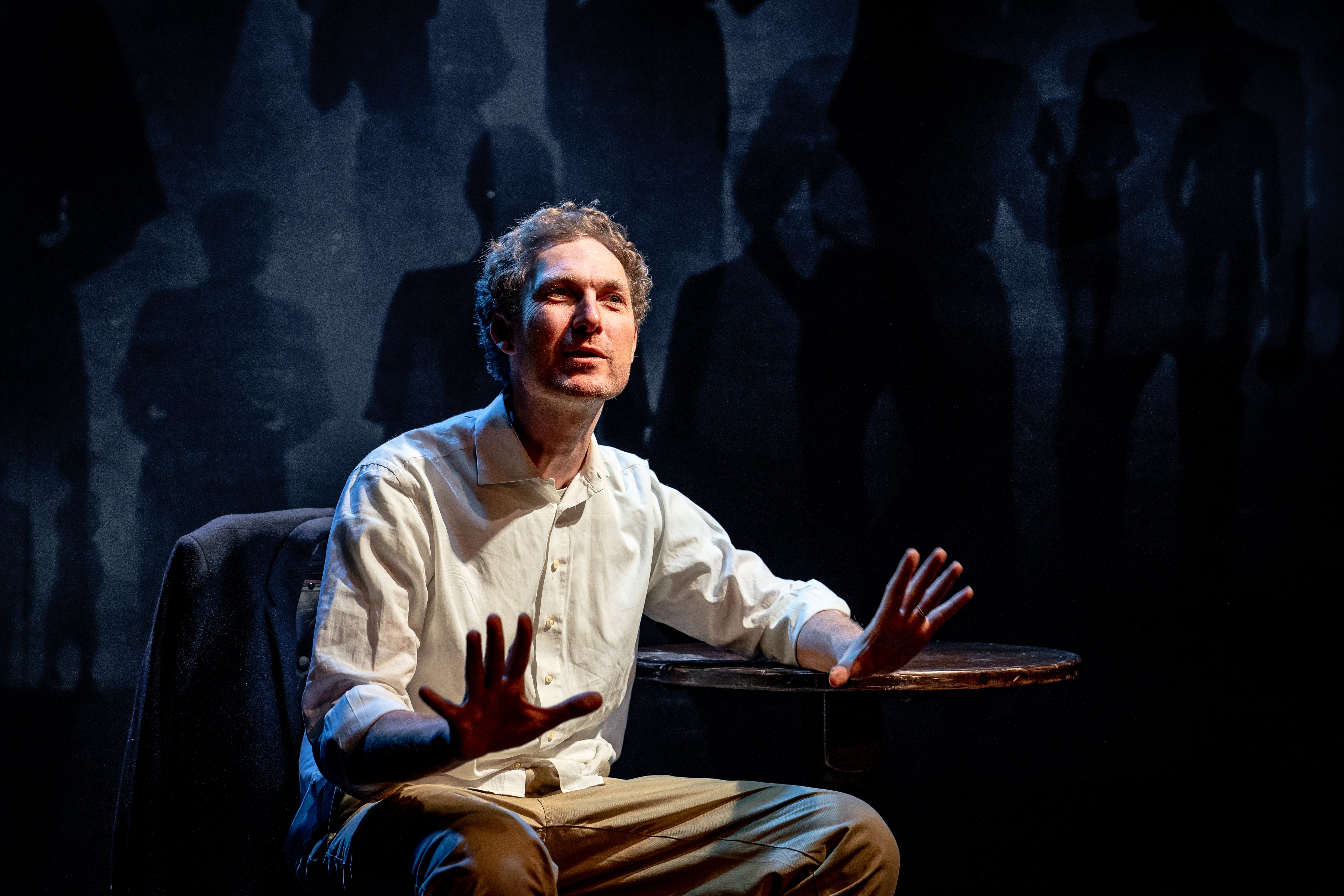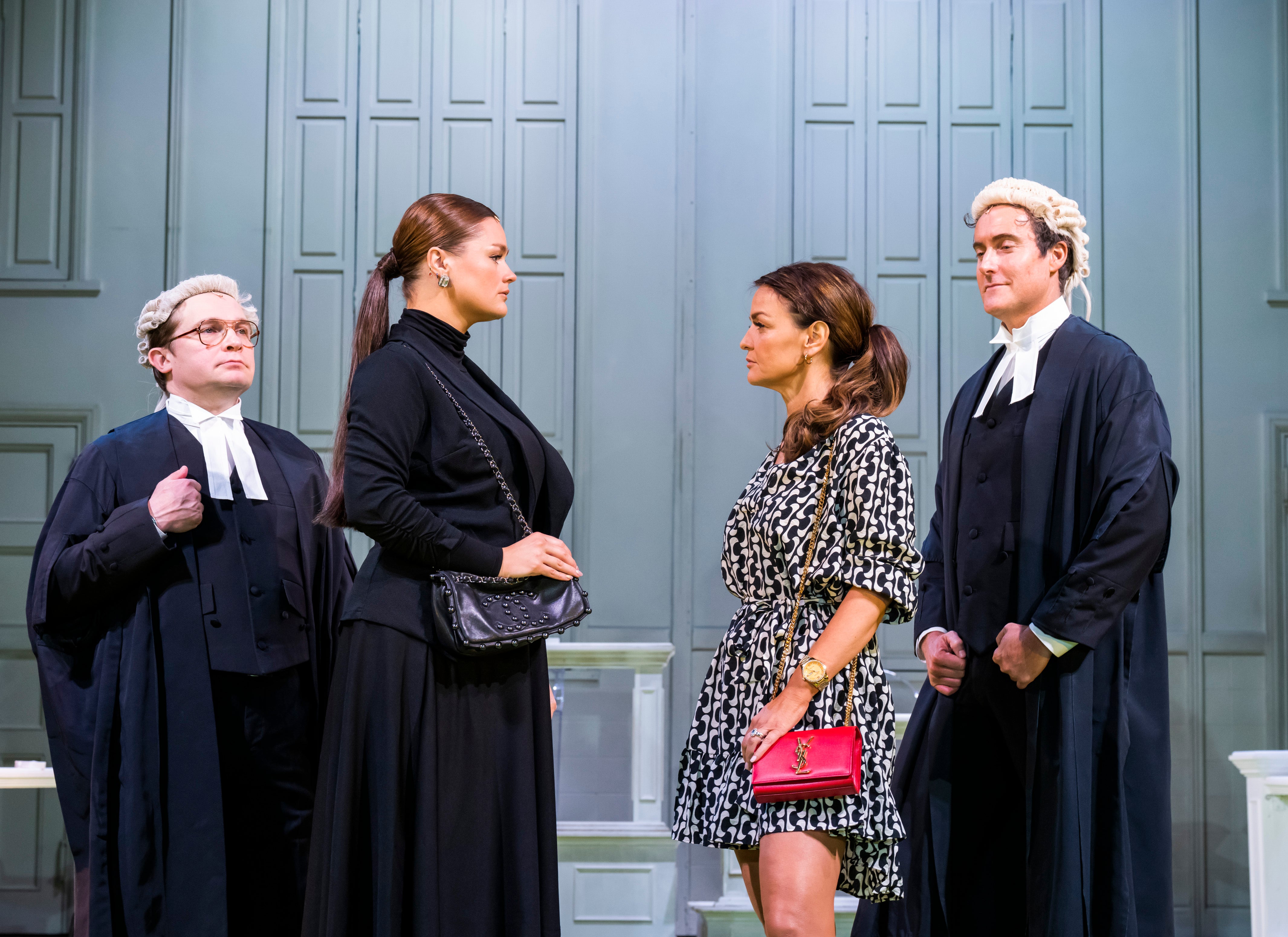The Week on Stage: From Othello to Vardy v Rooney
A guide to the week’s theatre

Your support helps us to tell the story
From reproductive rights to climate change to Big Tech, The Independent is on the ground when the story is developing. Whether it's investigating the financials of Elon Musk's pro-Trump PAC or producing our latest documentary, 'The A Word', which shines a light on the American women fighting for reproductive rights, we know how important it is to parse out the facts from the messaging.
At such a critical moment in US history, we need reporters on the ground. Your donation allows us to keep sending journalists to speak to both sides of the story.
The Independent is trusted by Americans across the entire political spectrum. And unlike many other quality news outlets, we choose not to lock Americans out of our reporting and analysis with paywalls. We believe quality journalism should be available to everyone, paid for by those who can afford it.
Your support makes all the difference.This week, the Wagatha Christie trial heads to the West End, Romola Garai directs a one-man show about journalistic ethics, and Clint Dyer creates a highly original Othello at the National Theatre.
Othello – National Theatre ★★★★☆
As I left Othello at the National Theatre, I overheard someone say to their friend, “Tragedies, man… everyone dies.” But even if we knew how this was going to go, Clint Dyer’s production – the first by a Black director at this theatre – creates a sense of the unexpected. Foreboding creeps into the action from the very start, with a pulsing soundtrack and a mob atmosphere. Othello (Giles Terera) arrives onto Chloe Lamford’s brutalist amphitheatre-like set like a champion boxer. He’s just married Desdemona, with whom he is boyishly, proudly besotted, but he’s surrounded by a gang of creepy fascist-style blackshirts, and people won’t shake his hand.
It’s pointedly noticeable that Othello is the only Black person on the stage, and Terera sensitively plays him as a man cornered, constantly having to justify his own existence. “She loved me for the dangers I had passed,” he says of Desdemona, and those dangers now feel very potent. Rosy McEwen’s Desdemona is naturalistic and modern, a strong, sensible partner prepared to face down those dangers alongside him. Paul Hilton doubles down on the villainy as a commanding, unapologetically nasty Iago; he is itchily hypnotising to watch. With his pencil moustache and trouser braces, here he is half Oswald Mosley, half guy who spends too much time on the internet posting racist conspiracy theories to Facebook groups.

Dyer’s production has a quality that suggests it will quickly become a classic. It’s transfixing, full of vision, and maintains an urgent pace despite its three-hour running time. If anything, Othello’s descent into madness perhaps feels too quick and the emphasis on race doesn’t cohere as well in the second half. In the end, though, the most powerful part of this reading is that Emilia (a moving Tanya Franks), Iago’s wife, is suffering from domestic abuse. It adds an almost unbearable helplessness to the scene the women share on the eve of Desdemona’s death. “Would you had never seen him,” Emilia says, knowing too much about what men are capable of. What follows is more horribly heartbreaking than ever. Jessie Thompson
Press – Park Theatre ★★★☆☆
Journalists are scum – that’s my overall takeaway from the first half of Sam Hoare’s one-man show, which is directed by his wife, the actor Romola Garai. It’s an opinion that’s hard to argue with in this particular story, given that Hoare’s public school toff-turned-tabloid reporter likes to revel in his shady exploits at dingy bars. Said exploits include, but are not limited to, the framing of an innocent man as a suspected paedophile to secure a front-page splash, and another story which results in the suicide of a teenage girl. Sordid tales of unethical (ahem, criminal) journalists became well-trodden dramatic terrain in the years post-Leveson Inquiry in 2012. It’s why, although Press is a sobering depiction of the profession, the polemic it delivers on press corruption and morality feels somewhat dated.

Halfway through comes a rug pull. Haunted by his unethical past, our reporter, who has spent the last half hour courting disdain from this audience – a credit, by the way, to Hoare’s very adept and believable performance – wants to repent. He embarks on a mission to report on the truth of a cover-up involving the persecution of refugees. Here is where things go awry, however, as the play becomes a bewildering crime drama – but it’s one that can’t quite reach the high levels of tension, nor the moral vindication, that it strives for. But even so, with its taut runtime of only an hour and a compelling performance from Hoare, Press is never boring. Annabel Nugent
Vardy v Rooney: The Wagatha Christie Trial – Wyndham’s Theatre ★★★☆☆
We all know what they say about something that ain’t broke. Ever since Coleen Rooney sensationally revealed in 2019 that the party leaking her private Instagram stories was………. Rebekah Vardy’s account, the fractured relationship between the footballers’ wives has been hailed as a great true-life drama. So, in Vardy v Rooney: The Wagatha Christie Trial, a once-a-week West End show directed by Lisa Spirling, they stick to the facts. All court scenes have the actors speaking the real transcripts from the trial earlier this year, where Vardy unsuccessfully sued Rooney for libel. And for the most part, it works.

Lucy May Barker and Laura Dos Santos are fabulously paired as the warring wives. Barker’s Vardy is uptight and bothered, while Rooney is played with a cool charm that has the audience immediately onside. The addition of match pundits (Sharan Phull and Nathan McMullen) commentating on the trial’s twists and turns is a genius touch, while also providing context when needed.
But as much as Vardy v Rooney’s adherence to reality is part of its charm, it’s also what holds it back. It’s more entertaining to watch someone try and fail to wriggle out of tricky questions, so, after a zingy, exciting defence from Vardy in act one, the energy deflates when Rooney, the righteous party, later takes the stand. Though not quite jury duty, the experience goes on to feel more formal and less like the soapy fun you’d come to enjoy. The truth is sometimes stranger than fiction, yes – but to keep an audience truly entertained, combining both works best. Nicole Vassell



Join our commenting forum
Join thought-provoking conversations, follow other Independent readers and see their replies
Comments